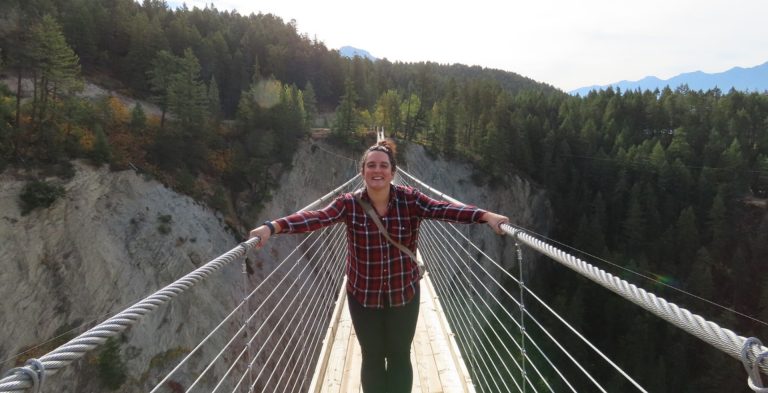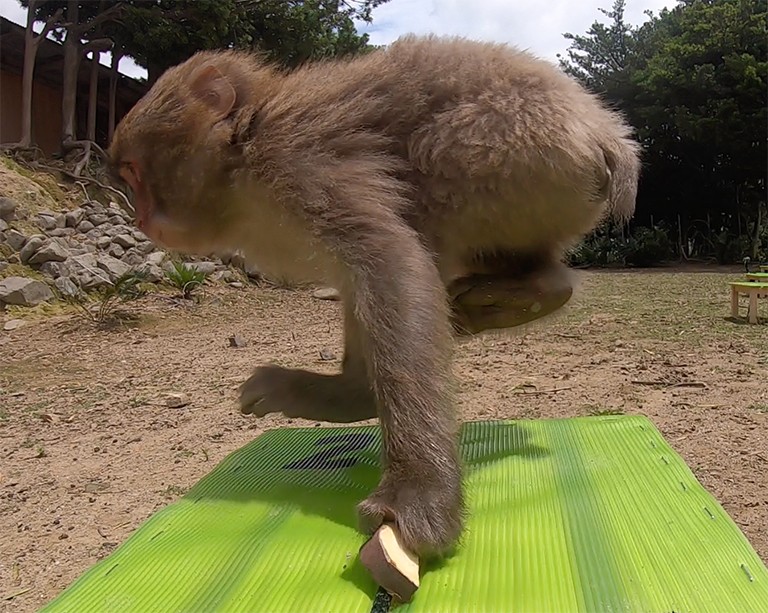Concordia researcher Megan Joyce is awarded the May 2024 Relève Étoile Louis-Berlinguet Award

Megan Joyce, a PhD student in Concordia’s Department of Geography, Planning and Environment, received a Fonds de recherche du Québec (FRQ) Louis-Berlinguet Relève Étoile Award for the month of May.
Joyce secured the prize in the FRQ’s Nature and Technology category for her research paper, “No food left behind: foraging route choices among free-ranging Japanese macaques (Macaca fuscata) in a multi-destination array at the Awajishima Monkey Center, Japan.” The paper was recently published in Primates, an international journal of primatology.
Three Relève Étoile prizes of $1,500 are awarded every month under the headings Society and Culture, Nature and Technology, and Health.

Route optimization and heuristics
“My research relates to the behavioural flexibility of Japanese macaques, an umbrella term that aims to understand how individuals or groups of individuals shift their behaviour during different life stages or activities,” says Joyce from Japan, where she is currently conducting fieldwork.
“Travel movement has been studied in humans and often relies on route optimization principles (the shortest route) or heuristics (simple rules of thumb) to analyze travel choices. Both of these methods look for patterns in travel movement decisions. So, for an array experiment, we pre-determine the shortest route through the array, as well as the routes that conform to common heuristics monkeys have used in other experiments.”
Joyce is doing her PhD in the Primatology and Interdisciplinary Environmental Studies (PIES) Lab of Sarah Turner, associate professor, geography, planning and environment. She set up foraging experiments to look for patterns in the macaques’ travel decisions.
“I observed the Awajishima monkeys select the shortest path, and they also moved in patterns conforming to heuristics other primates have used,” Joyce explains.
The importance of patterns
Joyce first developed a passion for working with and observing primates during a summer internship in Iowa, where she worked with Kanzi, a language ape, and his bonobo family.
“Understanding patterns in behavioural flexibility is important, because the more we understand (or try to understand), the more we can positively support animals and species who are impacted by human-induced environmental changes,” she says.
The future will see her conduct more experiments at the Awajishima Monkey Center in Japan, and she hopes to complete her PhD in the next two to three years.
“The data I collect is non-invasive, meaning I don’t interfere or bother the monkeys,” Joyce explains. “I hope to have a career that positively contributes to the environment and animals in some way.”
Find out more about Concordia’s Department of Geography, Planning and Environment.


